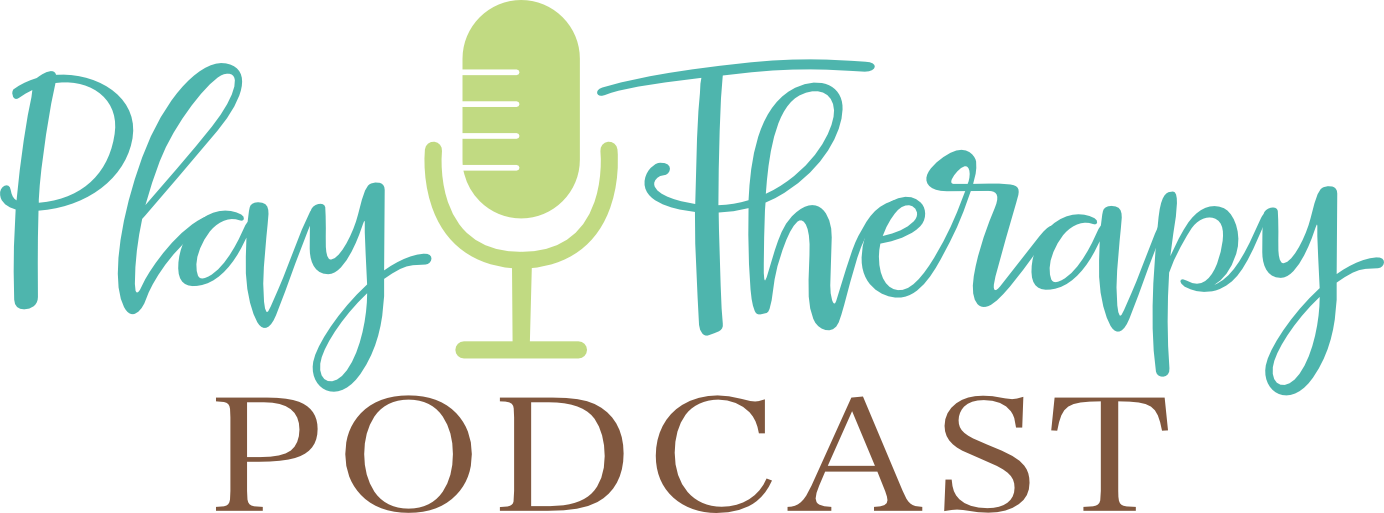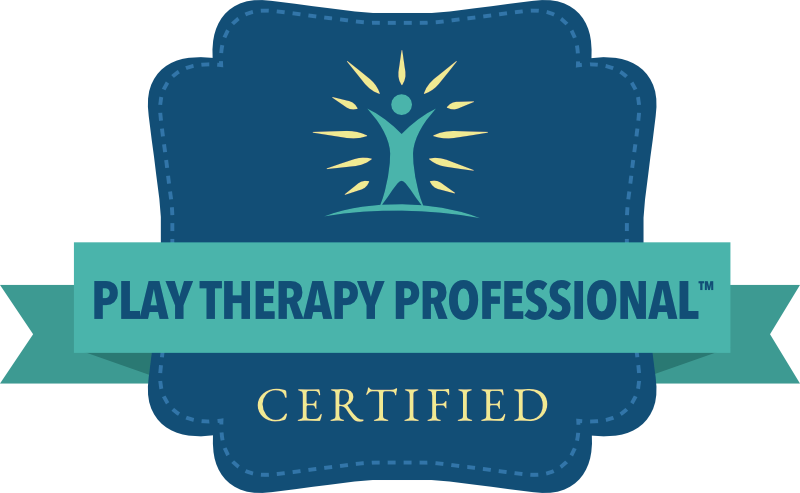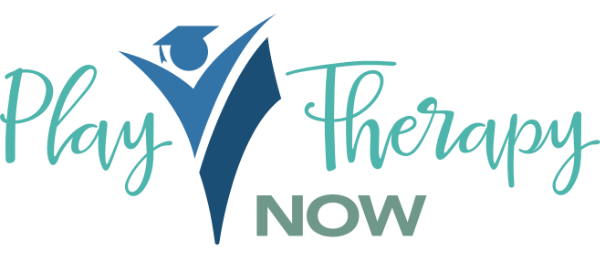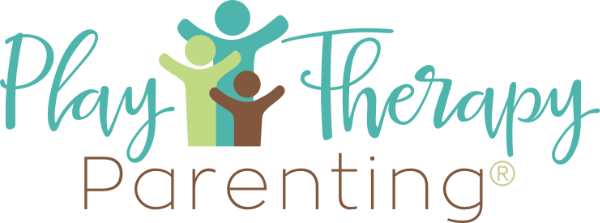Play Therapy Challenges: From Credentials to Limit-Setting
In this episode, I answer questions from Sarah, a school therapist in Florida. Sarah’s role as an in-school therapist for a therapeutic unit presents unique challenges, and I’m excited to address her questions about play therapy.
I start by reassuring therapists that you don’t need specific credentials to be an effective play therapist. The key is focusing on the relationship with the child and adhering to child-centered play therapy (CCPT) principles. Next, I discuss why we don’t explicitly teach self-regulation techniques in CCPT, explaining that children naturally develop these skills through the therapeutic process.
I also tackle the important question of whether CCPT can help children currently experiencing trauma. I emphasize that even when a child’s circumstances don’t change, play therapy helps build resilience, coping skills, and emotional regulation. Finally, I address the challenging scenario of dealing with destructive behavior in the playroom, offering specific strategies for setting limits and maintaining the therapeutic environment.If you would like to ask me questions directly, check out www.ccptcollective.com, where I host two weekly Zoom calls filled with advanced CCPT case studies and session reviews, as well as member Q&A. You can take advantage of the two-week free trial to see if the CCPT Collective is right for you.
Ask Me Questions: Call (813) 812-5525, or email: [email protected]
Brenna’s CCPT Hub: https://www.playtherapynow.com
CCPT Collective (online community exclusively for CCPTs): https://www.ccptcollective.com
Podcast HQ: https://www.playtherapypodcast.com
APT Approved Play Therapy CE courses: https://childcenteredtraining.com
Twitter: @thekidcounselor https://twitter.com/thekidcounselor
Facebook: https://facebook.com/playtherapypodcast
Play Therapy Questions: From Credentials to Limit-Setting
As play therapists, we often encounter questions about our practice, credentials, and the effectiveness of child-centered play therapy (CCPT). In this post, I’ll address several questions from Sarah, a school therapist in Florida, covering topics that many of us grapple with in our work with children.
Can Uncredentialed Therapists Call Themselves a Play Therapist?
The short answer is: Yes!
Many therapists worry that without specific credentials like RPT (Registered Play Therapist) or CCPT certification, they can’t call themselves play therapists or practice effectively. This couldn’t be further from the truth.
Being a play therapist simply means you’re a therapist who provides play therapy. There’s no proprietary nature to the term, and you don’t need to be licensed, certified, or registered to use it.
That said, it can be helpful to describe yourself as a “children’s counselor and play therapist” to help the general public understand your role better.
As for effectiveness, if you’re using the child-centered model to the best of your ability and continually working to improve your skills, your therapy will be effective. Why? Because CCPT is all about the relationship. While clinical skills matter, the effectiveness of CCPT flows from the therapeutic relationship you build with the child.
Should We Explicitly Teach Self-Regulation in CCPT?
The simple answer here is: Never.
In CCPT, we don’t explicitly teach self-regulation techniques like breathing exercises or mindfulness. These approaches are directive and agenda-driven, which goes against the principles of child-centered therapy.
However, this doesn’t mean children won’t develop self-regulation skills. Through CCPT, children naturally learn to self-regulate. They develop coping mechanisms, expand their emotional vocabulary, and increase their capacity to handle difficult emotions.
It’s important to remember that children aren’t cognitive or rational in the same way adults are. They won’t consciously decide to take deep breaths when upset. Instead, they’ll develop their own ways of coping and regulating their emotions through play.
Increased regulation is actually one of the universal outcomes of CCPT. The key is that children figure it out for themselves rather than being taught specific techniques.
Can CCPT Help Children Currently Experiencing Trauma?
Yes, CCPT can make a significant difference for children in ongoing traumatic situations.
Even when a child’s circumstances don’t change – for instance, if they remain in foster care or have disengaged parents – CCPT helps them build resilience, coping skills, and a stronger sense of self. They develop problem-solving skills, emotional regulation, and an expanded emotional vocabulary.
We celebrate the fact that even in the midst of dysfunction and chaos, children can learn to better handle their situations through play therapy. While we can’t change their external circumstances, we can provide an opportunity for internal change and growth.
The effectiveness of CCPT in these situations stems from the fact that a dysfunctional environment is only as difficult for a child as their coping skills allow it to be. As they develop trust in themselves and their problem-solving abilities, their challenging environment becomes less overwhelming.
How to Handle Destructive Behavior in the Playroom
Dealing with aggressive or destructive behavior in the playroom is a common challenge. Here are some key points to remember:
1. No child will be destructive every single time. Even if it seems persistent, it’s a temporary phase that will reduce over time.
2. Treat each destructive behavior as an isolated incident requiring its own limit. Don’t lump all challenging behaviors together.
3. The playroom isn’t triggering the child. Rather, the permissive and safe environment might be unfamiliar, making it difficult for the child to control themselves initially.
4. Always conduct therapy in the playroom. Don’t move to an empty room or remove toys as punishment. The child needs to learn self-regulation in the challenging environment.
5. Set limits as needed, but keep the child in the playroom. They might lose access to specific toys they’ve misused, but they should remain in the therapeutic space.
Setting Limits Effectively
When setting limits:
1. Address the specific behavior: “You’re throwing blocks hard, but blocks aren’t for throwing because…”
2. Provide a reason: “…because I could get hurt” or “…because it could break the miniatures.”
3. Offer alternatives: “You can choose to throw the blocks at the floor, or you can throw the stuffed animals. Which do you choose?”
Remember to tailor your limits and alternatives to your specific playroom setup and the child’s needs.
Child-centered play therapy is a powerful approach that allows children to work through their challenges naturally. By trusting in the process and maintaining a strong therapeutic relationship, we can help children develop the skills they need to navigate their world more effectively.
As Sarah, the therapist who submitted these questions, noted: “I’ve seen the benefits of CCPT even just after a few sessions with my clients.” This approach allows us to step back from trying to control or direct the child’s behavior and instead trust in their innate ability to grow and heal through play.








